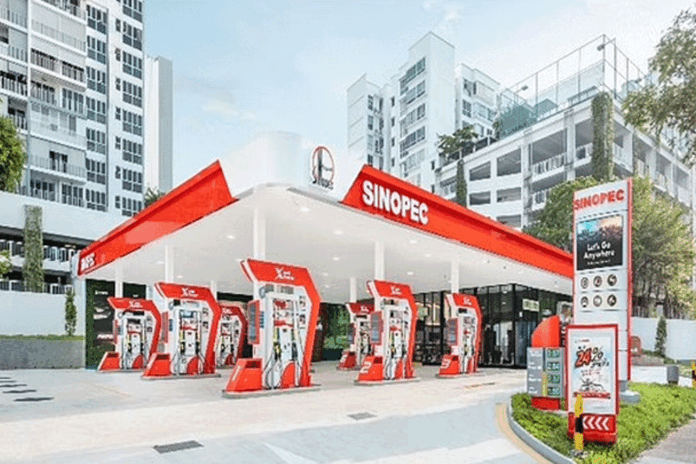April 26, Colombo (LNW): Chinese state energy giant Sinopec is pushing for greater access to Sri Lanka’s market, where rival India is also seeking to expand its presence, as it looks to build its first fully-controlled overseas refinery, reflecting a change in the firm’s global strategy to compensate for slowing demand growth at home.
Sinopec, the world’s largest oil refiner, is expected to complete a feasibility study by June for a plant at the Chinese-run Hambantota port, after winning Colombo’s approval last November, official soureces confirmed.
While the China-based sources say the investment, which Colombo pegged at $4.5 billion as the country’s largest-ever foreign investment, is commercially driven, neighbouring India is pushing a rival plan to build a fuel products pipeline to the island nation southeast of the subcontinent.
This move, which is a major change in Sinopec’s foreign strategy, is perceived as a reaction to China’s slowing increase in demand.
The proposed investment, estimated at $4.5bn by Sri Lankan officials, would be the country’s largest-ever foreign investment.
While the initiative is commercially driven, it also places Sinopec in competition with India, which is promoting a rival plan to build a fuel products pipeline to Sri Lanka.
State-owned Indian Oil Corporation is currently the second-largest fuel supplier to Sri Lanka, following government-owned Ceylon Petroleum.
Sinopec’s investment in Sri Lanka, along with another project in Saudi Arabia, is part of a broader effort to leverage the company’s expertise and financial resources for global expansion.
This comes as oil demand in China approaches its peak amidst economic slowdown and the rise of electric vehicles.
The company’s international investment strategy has evolved following a decline in Chinese oil and gas investments abroad, which dropped to $344m in 2023 from a record $31bn in 2012, the report said, citing London Stock Exchange Group data.
In negotiations with Colombo, Sinopec is seeking greater access to the import-reliant Sri Lankan market, a critical factor for its final investment decision.
Sri Lanka, facing a foreign exchange crisis, desires a refinery that would satisfy 20% of its domestic fuel needs and allow for exports to generate hard currency.However, Sinopec believes focusing on domestic sales could be more profitable.
The company is considering constructing either a 160,000 barrels per day (bpd) refinery or two phased 100,000bpd plants, primarily producing gasoline and diesel.
Sinopec has been requesting more accommodating conditions for the project’s domestic marketing share for several months now, but Colombo has not agreed.
Sinopec declined to comment and requests for comments from India’s foreign ministry and Indian Oil Corporation did not elicit a response, the publication said.
Sri Lanka’s power and energy minister, Kanchana Wijesekera, has indicated that the government is maintaining its stipulation for the refinery’s output and expects Sinopec to sign an investment agreement by June.
Sinopec’s Hambantota project is a top priority, alongside a significant investment in expanding a refinery into a petrochemical complex at Saudi Arabia’s Yanbu port, in partnership with Saudi Aramco.


